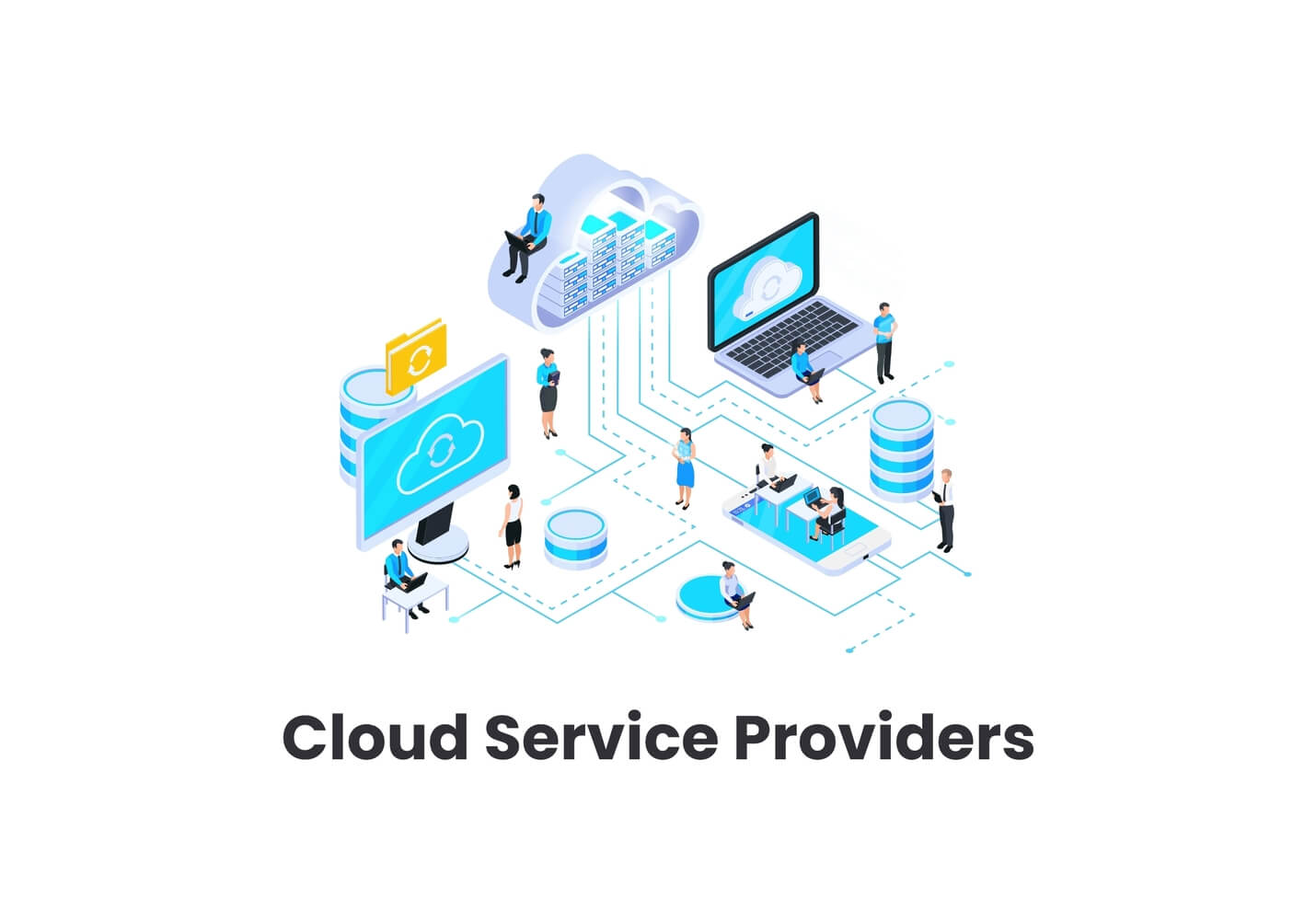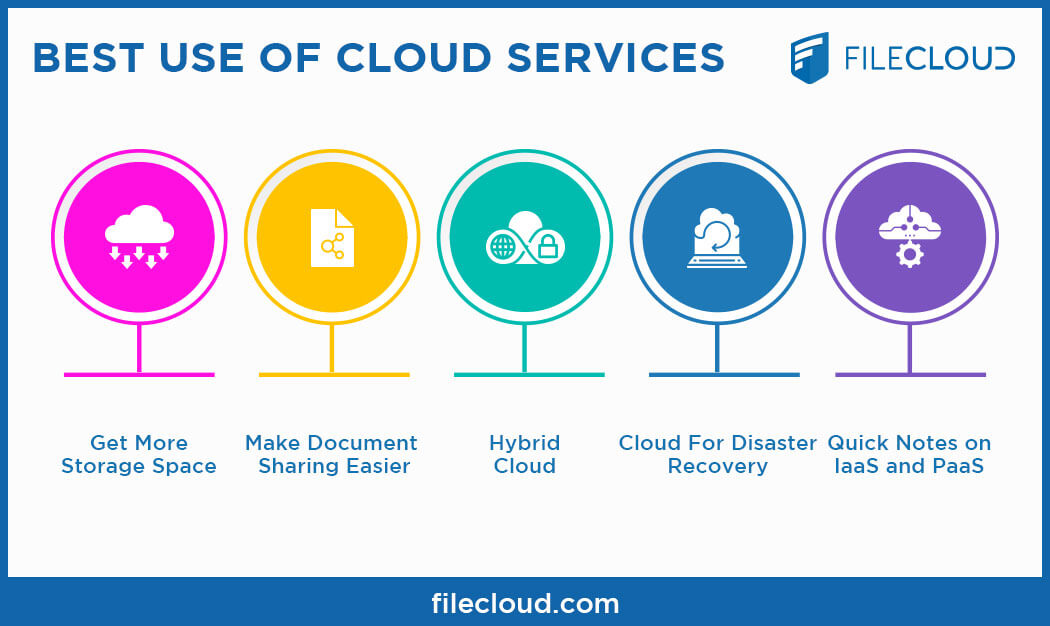Streamline IT Monitoring With Cloud Solutions
Cloud solutions have emerged as a feasible service for organizations looking to boost effectiveness, minimize costs, and enhance overall IT efficiency. Exactly how exactly do these cloud services change standard IT administration techniques? Let's explore the transformative impact of leveraging cloud solutions on IT procedures and the essential considerations for effective implementation.
Benefits of Cloud Services

Moreover, cloud services allow organizations to boost their operational performance by enhancing processes and minimizing the time and sources required for handling IT infrastructure. With cloud solutions, companies can automate regular tasks, such as software program updates and information back-ups, freeing up IT groups to concentrate on more strategic campaigns that drive organization worth.

Improved Scalability and Flexibility
Cloud solutions provide services with unparalleled scalability and adaptability in managing their IT sources successfully. With cloud solutions, organizations can swiftly scale up or down their computing resources, storage ability, and network transmission capacity to meet changing requirements without the demand for substantial upfront investments in hardware.
In addition, cloud services supply the flexibility for employees to gain access to business information and applications from anywhere, at any moment, and from any type of gadget with a net link. This capacity enhances productivity and cooperation amongst remote groups or staff members functioning in different places. In addition, cloud solutions supply the versatility to pick from a range of solution models, such as Framework as a Solution (IaaS), System as a Solution (PaaS), or Software as a Solution (SaaS), based upon the specific demands of business. The enhanced scalability and versatility provided by cloud services equip companies to optimize their IT operations and stay agile in today's dynamic market atmosphere.

Cost-Effectiveness and Financial Savings
With the ability to efficiently assign sources based on demand, organizations utilizing cloud solutions can harness considerable cost-effectiveness and understand substantial savings in their IT operations. Cloud solutions supply a pay-as-you-go model, allowing companies to only spend for the resources they make use of, eliminating the requirement for big in advance financial investments in software and hardware. This scalability guarantees that companies can quickly adjust to changing demands without spending beyond your means on unnecessary sources. Additionally, cloud services decrease upkeep costs by moving the obligation of hardware maintenance and software application updates read the article to the service company. This decreases the requirement for specialized IT staff to take care of facilities, more lowering operational expenditures. The cloud provides economic climates of scale, with carriers spreading prices throughout multiple clients, resulting in lower specific expenses for solutions like storage space and computing power. In general, the cost-effectiveness and savings attained via cloud solutions enable businesses to reallocate sources in the direction of advancement and development efforts.
Improved Protection and Conformity
Enhancing the total safety and security position and ensuring regulatory compliance are extremely important considerations for companies leveraging cloud services in their IT management strategies. Cloud provider supply innovative security steps, such as data encryption, multi-factor authentication, and automated back-ups, which can bolster a company's protection structure. These service providers additionally adhere to rigid regulatory criteria, such as GDPR, HIPAA, and PCI DSS, helping businesses satisfy conformity demands a lot more effectively.
Executing cloud services can enhance safety by providing streamlined control over gain access to monitoring, tracking, and information protection. This central approach streamlines protection monitoring and makes sure constant application of protection plans across the company. Additionally, cloud services usually offer real-time safety and security updates and patches, decreasing the risk of vulnerabilities and prospective violations.
Best Practices for Cloud Application
Implementing cloud services efficiently requires a structured strategy that incorporates comprehensive planning and persistent execution. To guarantee a smooth shift to the cloud, organizations ought to start by performing a detailed assessment of their present IT i thought about this infrastructure and recognizing which work are appropriate for migration. It is important to develop clear goals and specify essential performance signs (KPIs) to gauge the success of the cloud implementation.
One of the most effective practices for cloud implementation is to thoroughly pick a cloud provider that lines up with the company's requirements in terms of safety and security, scalability, cost-effectiveness, and compliance. Additionally, developing an in-depth movement plan that lays out the actions included, timelines, and responsibilities is crucial for an effective application.
On a regular basis maximizing and keeping an eye on cloud resources to make certain efficient performance and expense management is an additional important facet of cloud execution ideal practices. Continual examination of the cloud setting and remaining informed regarding updates and brand-new features provided by the cloud copyright can further improve the organization's cloud technique. By following these best practices, companies can streamline their IT administration and make the most of the benefits of cloud solutions.
Conclusion
In verdict, leveraging cloud services for IT management offers numerous advantages, including boosted scalability, cost-effectiveness, boosted protection, and compliance. Overall, cloud services enhance operational effectiveness and agility in managing IT facilities.
Additionally, cloud solutions supply the adaptability to choose from a range of solution models, such as Framework as a Service (IaaS), Platform as a Service (PaaS), or Software Program as a Service (SaaS), click here now based on the particular demands of the organization. Additionally, cloud solutions reduce maintenance expenses by shifting the obligation of hardware maintenance and software program updates to the service provider.Enhancing the overall security pose and making sure regulatory conformity are vital factors to consider for companies leveraging cloud solutions in their IT management strategies.Frequently keeping an eye on and optimizing cloud sources to make sure efficient performance and expense management is one more critical facet of cloud application ideal methods. Constant evaluation of the cloud atmosphere and staying educated about updates and brand-new attributes provided by the cloud service provider can further enhance the organization's cloud technique.
 Angus T. Jones Then & Now!
Angus T. Jones Then & Now! Mike Vitar Then & Now!
Mike Vitar Then & Now! Sydney Simpson Then & Now!
Sydney Simpson Then & Now! Melissa Sue Anderson Then & Now!
Melissa Sue Anderson Then & Now! The Olsen Twins Then & Now!
The Olsen Twins Then & Now!